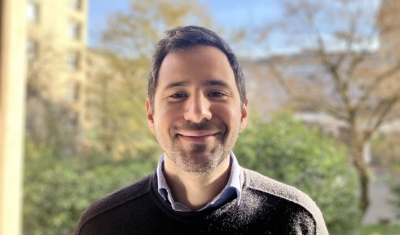Executive Master in International Law in Armed Conflict: What Participants Say
1 June 2021
Collins Odhiambo is a Captain in the Kenyan Air Force where he is in charge of a squadron, overseeing its operations, management, training and administration.
He just completed a one-and-a-half-year assignment with the United Nations Multidimensional Integrated Stabilization Mission in the Central African Republic (MINUSCA), where he coordinated and participated in the disarmament, demobilization and reintegration process. As such, he notably identified and analysed security, humanitarian, socio-economic, human rights and military developments that affect the protection of civilians. He also participated in human rights training programmes for national law enforcement officials, representatives of civil society and human rights non-governmental organizations.
Collins Odhiambo is currently enrolled in our Executive Master in International Law in Armed Conflict and follows the programme online.
Why did you choose the Executive Master in International Law in Armed Conflict?
After serving in the military and being posted to conflict and post-conflict regions, I realized that my work revolved around humanitarian activities and that I had to work closely with humanitarian organizations. To be effective and efficient in my work, I needed strong knowledge of the law of war and the syllabus of this programme offered me exactly what I needed.
Does it respond to your expectations?
This master’s programme is uniquely designed to make it easy – even for those like me who do not have a law background – to grasp its content. The programme surpassed my expectations, sharpened my knowledge and turned me into an international humanitarian law (IHL) teacher at my workplace.
What are the highlights of the programme?
I love the interactions with the lecturers and fellow participants, it is something one hardly experience even in physical classes. The hypothetical scenarios that are used in class are very relevant to the reality I meet in the field and I found myself referring to them in several instances.
How is distance learning?
When I decided to follow the programme online, I thought it was going to be easy, but I realized that it requires dedication just like in-class learning. The way classes are conducted in this programme allows for very close interaction between participants and this is what I enjoy the most since the distance learning option allows participants from different backgrounds to join.
Can you easily manage following this programme and working at the same time?
I easily manage to follow the programme: the classes are all recorded and available on a platform, so participants can watch them any time. The amount of work and readings however require students to allocate a good amount of time and nobody should think it is easy just because it is part-time.
What will it bring to your career?
This programme will definitely make me more effective and efficient at work hence offer me professional growth. It will also expand my employment opportunities.
Would you recommend it?
If someone is looking for an opportunity to learn IHL online, I would highly recommend this programme. It is well-tailored to meet contemporary situations.









